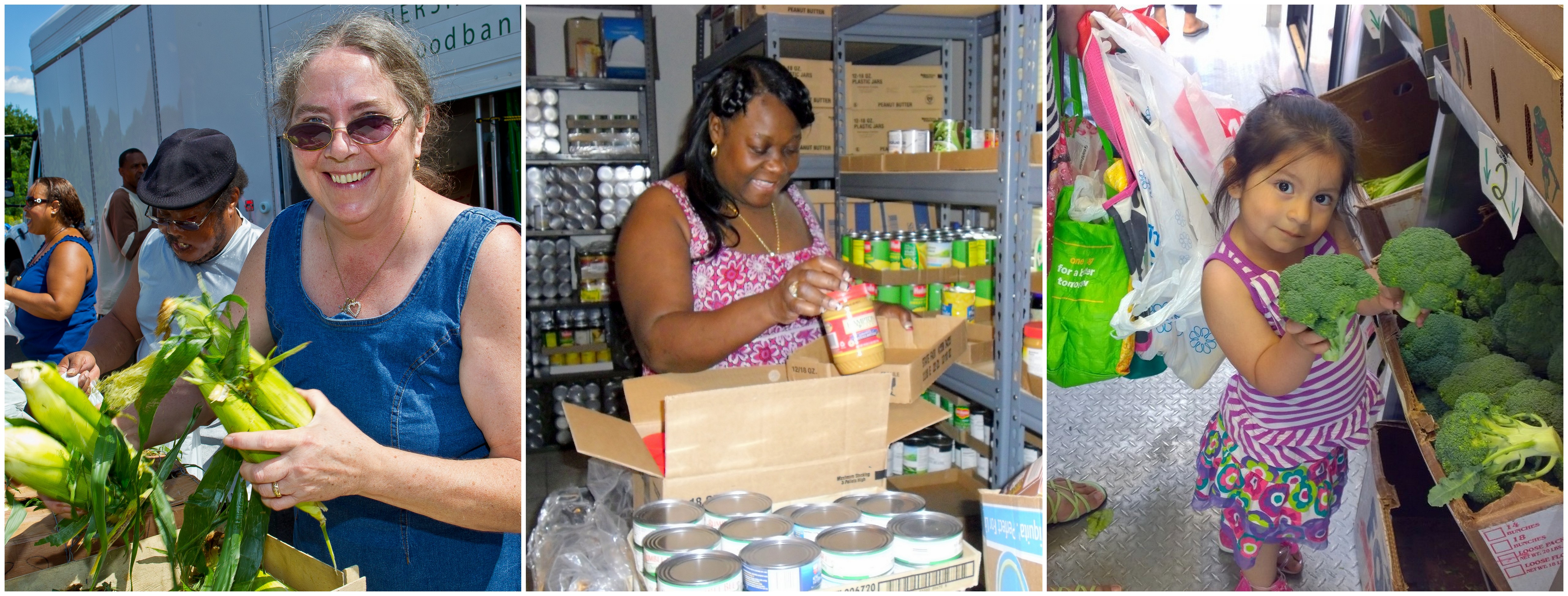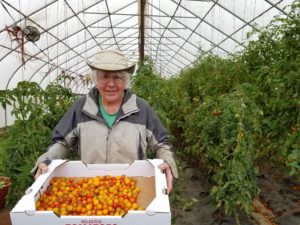- About Us
-
-
About Us
-
-
-

-
“This is an opportunity for our students to provide more for their families, for our students who may not have access to the resources that others do. It’s a blessing for the students who need that support.”
Randall Ward, Director of Student Services, Capital Community College in Hartford
-
- Find Help
- Ways to Give
- Volunteer
- Donate
- Partner Programs
The Harvest

Farm Partner Highlight: Wild Carrot Farm
12/Sep/17 / 11:20

Mark, from Wild Carrot Farm, holding some of this year’s tomato crop.
Farms are terrific partners in the fight against hunger. The Connecticut Food Bank is proud to work with Connecticut farmers to grow solutions to hunger in our state. In addition to helping provide more access to fresh produce, we support the local farm economy by working to move all produce to tables and pantries. We helped to facilitate the donation of about 200,000 pounds of local produce during the 2015-2016 growing season. Collectively, farmers and the Food Bank help our Connecticut neighbors experiencing hunger and promote consumption of locally grown food.
This month, we caught up with farmers Mark and Joanie of Wild Carrot Farm, an organic farm in Bantam, and our new partner in this work.
How did Wild Carrot Farm get its start?
In 2004, we leased three acres in the town of Canton after Mark apprenticed for two years at Riverbank Certified Organic Farm in Roxbury. In 2013, we moved the farm to Bantam.
What sorts of crops does Wild Carrot plant?
We cultivate 85 different crops from artichokes to zucchini (for more info see crop list on their web site).
What happens on a typical day at the farm?
We work really hard from 7:00 AM to dark and employ local teenagers who work really hard, too!
What are the benefits of local and/or organic produce?
It’s very healthy, nutritious and super fresh!
What is a CSA, and how does Wild Carrot’s CSA function?
Community Supported Agriculture is described in detail on our web site. The benefit to farmers is that the shares purchased by members provide us cash in the spring planting season when expenses for labor and materials are high, but sales are low. The benefit to CSA members is they get produce at a discount AND they can select whatever items they want.
Why does Wild Carrot donate produce?
When we have extra produce available and/or produce with minor issues, we want people who can’t afford it to eat our healthy food.
When/why does Wild Carrot utilize Connecticut Food Bank volunteers for gleaning (gather leftover produce after a harvest)?
Wild Carrot Farm does not have the budget or resources to glean produce that we can’t sell. We welcome supervised gleaners to our farm.
What’s new on the farm?
Ginger is one of our newest and very popular crops. We get the seed from Hawaii in March, plant it in June and begin harvesting ginger in October.
Is there anything we forgot to ask that you’d like to share with us?
We are very thankful that Alanna Gilbert (Connecticut Food Bank Farm-to-Pantry Program Coordinator) has taken the time to develop a gleaning program, and we hope that it can become a statewide program similar to that run by the New Jersey Department of Agriculture. Funding for a program like this would be money well spent and would allow many, many people to eat very healthy produce.
Final Thought: All Connecticut farms have produce to glean!





